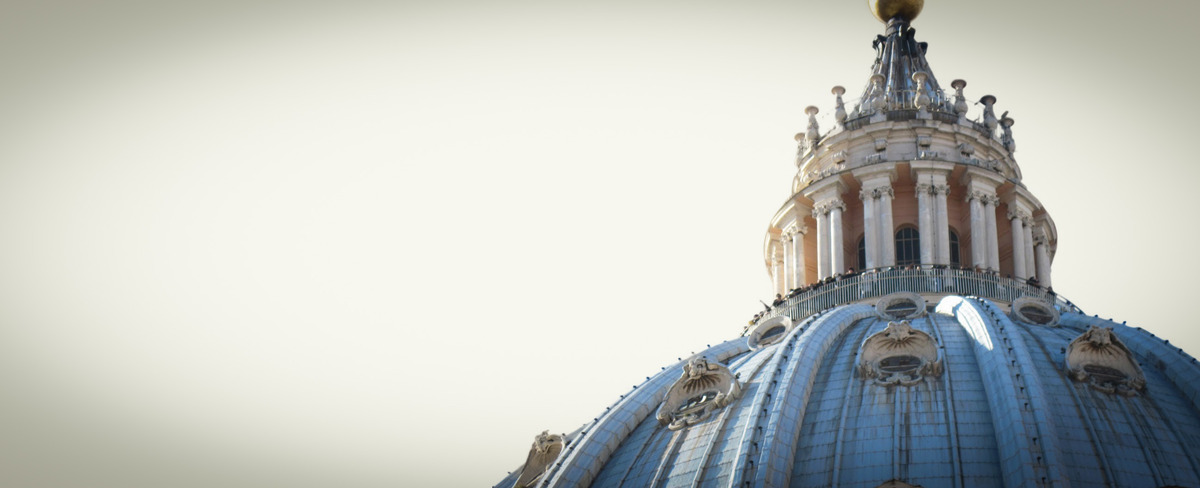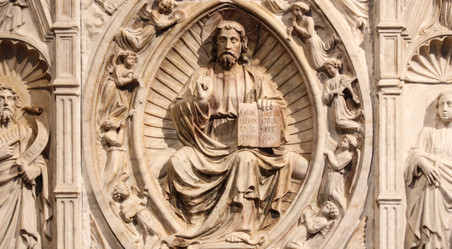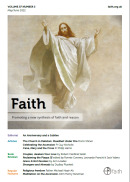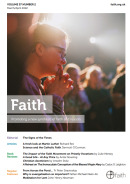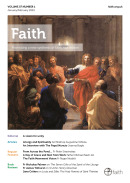Featured
Editorial
In this New Year issue for 2018 we tackle a topic that is in the front line when the fashionable culture of today’s West meets the timeless truths of the Christian Faith: the new gender ideology, recently strongly denounced by Pope Francis. We take this opportunity to thank the Holy Father for his clear message on this, and we would like more to be done. May we hope our Bishops might take up the issue and give some special clear moral guidance for Catholics in Britain?
Gender Theory and Gender Ideology

The Catholic Church does not favour what is known as gender theory or what flows from it, gender ideology. In 2015 in Rome, the Synod of Bishops on the Family rejected gender ideology (see text of the final Relatio, n. 8). The theory and its ideology also contradict the beautiful Theology of the Body proposed by Saint John Paul II.
A vision realised? - An interview with Myles Dempsey
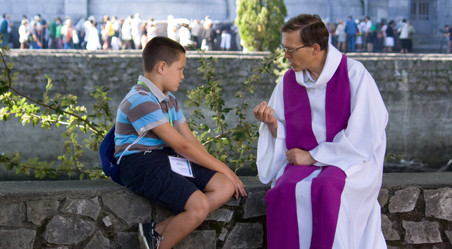
A Norfolk meadow and a big Catholic gathering: people are pouring out of a big tent, children are running about, everyone is starting to gather for a Rosary procession. In the centre of things, an elderly man is moving slowly and purposefully on an automated chair-bike. This is New Dawn in the Church, a vast gathering that takes place every year at Walsingham, and the man in the chair-bike is Myles Dempsey, effectively the founder of the event and still keen to be at the heart of things.
Faith and Reason on the way to St James
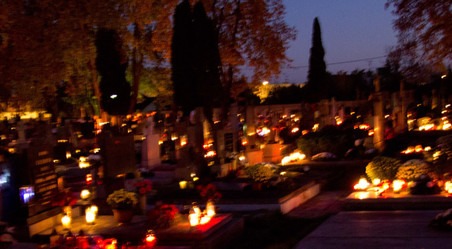
The Apostle James the Greater, son of Zebedee, brother of John, deserved the nickname given him by Our Lord. He and John were the Sons of Thunder, Boanerges, (Mk 3:17). They suggested a rather spectacular punishment for an unfriendly Samaritan village (Lk 9:52-56). They (or did they ask mother to do it for them ?) dared to ask Our Lord whether they could sit at his right and left hands when he came into his glory.
Faith Summer Break - How I spent my summer
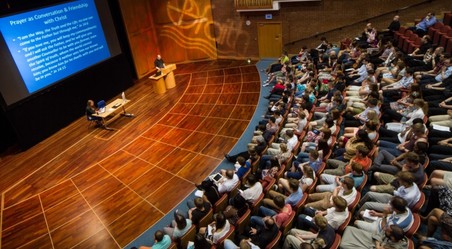
In the summer of 2015, my Dad asked me if I wanted to go on the Faith Summer Break. At first I felt obliged to go, like he wanted me to and I had to because he had investigated it. Then I felt a bit daunted, new people… I had just started at my new secondary school, which was hard enough. New people; how would I fit in?
Every Catholic should attend Mass each Sunday. Why?
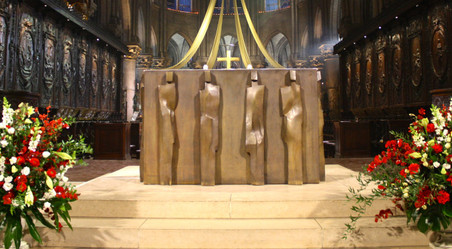
On an early Sunday morning “Do I really have to get up just to go to Mass?” may be the question on some young Catholics as their parents announce it’s the wake-up call if they are to get to church on time. “Am I really getting anything out of it; why can’t I just pray alone?” they ponder.
Book Review - Science and Original Sin
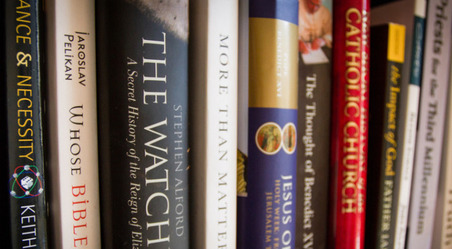
Evolution and the Fall is a collection of essays from a multi-disciplinary and ecumenical group of authors, which sets out to address “a set of problems that arise from the encounter of traditional biblical views of human origins with contemporary scientific theories” (p. xv) —not, one might add, in general, to answer them. Only two of the contributors attempt synthetic solutions to the problems. That said, I found all the chapters worthwhile and stimulating —even when I disagreed with them.
Evolution and the Fall is a collection of essays from a multi-disciplinary and ecumenical group of authors, which sets out to address “a set of problems that arise from the encounter of traditional biblical views of human origins with contemporary scientific theories” (p. xv) —not, one might add, in general, to answer them. Only two of the contributors attempt synthetic solutions to the problems. That said, I found all the chapters worthwhile and stimulating —even when I disagreed with them.
Book Review - New light on the Trinity from the Old Testament
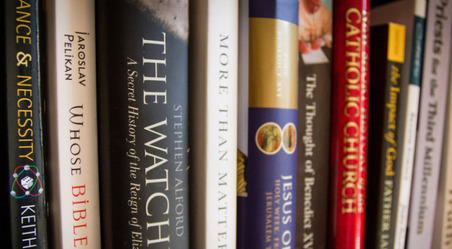
Reading a book such as this, I feel that a light has been switched on. Professor Bates helps us see a way in which the New Testament speaks of the Holy Trinity: it recognises the Divine Persons speaking to or about each other in certain Old Testament texts. The book’s title, The Birth of the Trinity, in fact understates the support it gives to the claim that the doctrine of the Trinity was not developed by the Church on slender foundations, but is found with significant richness in the New Testament.
Book Review - A positive approach to suffering
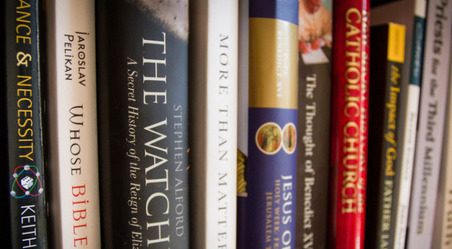
Brendan Purcell has given us a helpful reflection on the important topic of God and suffering. It is a slim and accessible volume, taking a personal approach without eschewing theological and philosophical perspectives.
Book Review - Explaining and meditating on the Mass
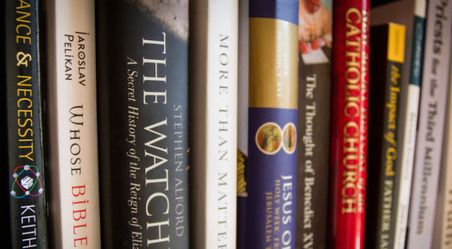
One would be hard pressed to find a book about the Mass and its relationship with Sacred Scripture as thorough as the fourth edition of The Bible and the Mass. In a modest eighty-seven pages (followed by Appendices on liturgical colours, vestments, objects used in worship, and the use of Latin in the liturgy), Rev. Peter Stravinskas covers every detail of the Mass from the Entrance to the Concluding Rites with facts and explanations, often surprising, about the Scriptural origins and contemporary celebration of the Eucharistic liturgy.
-
Editorial
In this issue…
In this New Year issue for 2018 we tackle a topic that is in the front line when the fashionable culture of today’s West meets the timeless truths of the Christian Faith: the new gender ideology, recently strongly denounced by Pope Francis. We take this opportunity to thank the Holy Father for his clear message on this, and we would like more to be done. May we hope our Bishops might take up the issue and give some special clear moral guidance for Catholics in Britain?
We need this, because although most Catholics do tend to take a robust commonsense view on the subject, we are also keenly aware of great pressure from public authorities. The gender ideology is now increasingly imposed in universities: staff and students who challenge its rigid pronouncements know that they may face dismissal (in the case of staff) or warned of failure in examinations (students). These are not idle threats. To be denounced as “transphobic” or of failure to be sympathetic to a plan for “transgender studies” or to show insufficient enthusiasm for a plan for a transgender cross-dressing celebration or similar can have grim results. A culture of bullying has taken over in this area, and the idea of academic freedom, wide enquiry, and genuine debate and analysis is no longer seen as essential in university life.
In wider public life, too, the plight of a local borough councillor, school governor, magistrate or head teacher who challenges the gender-agenda is likely to be a bleak one. An offer of resignation would be expected from one who opposed replacing the Union Jack with the “rainbow flag” to honour lesbian and homosexual campaigners, or who ventured the opinion that having a trans-gender “safe space” in a school or town hall is absurd.
Catholics have been blessed in recent decades with fine teaching - St John Paul, the great defender of human life, founder of World Youth Day, initiator of what came to be called the “Theology of the Body”, and much more, and Pope Benedict XVI with his accessible and attractive presentation of profound wisdom, with his great encyclicals on Faith, Hope, and Love. 2018 marks the anniversary of the surprise 1978 election of Pope John Paul. It is worth remembering just what a surprise it was - who in January 1978 could honestly have imagined a Polish Pope by the end of that year? Who could have foreseen the complete collapse of the Communism system in Eastern Europe and of the USSR in just over a decade?
St John Paul began his pontificate with a rallying-call to courage, quoting Christ’s words “Do not be afraid!”, which carried conviction because this was a man who had lived and studied under one totalitarian regime, and then ministered as priest and Bishop under another. He showed us how the Church cannot merely survive but prosper under adversity, becoming the voice of human values, truth, honour, humour, and wisdom in the face of state-imposed ideology.
Poland in the 20th century endured cruelties and horror on an unprecedented scale. We in Britain, and in the West generally, were spared these. In studying the methods and message of St John Paul as priest and bishop, we can apply them to our own situation – that is why the lives of saints are held up to us by the Church – and we should do so with gratitude to God for this example.
It is appropriate that in this issue we have also messages of hope: we feature a winning essay in the Catholic Young Writer Award, a cheering report from the FAITH Movement’s own Summer Break for teenagers and pre-teens, an interview with the founder of the popular New Dawn annual gathering at Walsingham, and a report on the revival of the great Medieval pilgrimage to Compostela.
Of course none of this means that we can run away from battles for the freedom of the Church and indeed of nonbelievers over the current attempts to impose a crude ideology on us all. But they point to a greater vibrancy in the Church than is sometimes acknowledged. St John Paul showed us how the strength and joyful hope of the Church can create vast pools of freedom and hope that can in their turn wash away cruel and unjust ideologies. It must have seemed unlikely, in the 1970s, that his modest achievements in Krakow - a vast annual Corpus Christi procession through the city, the great new church at Nowa Huta, a network of social care established for unmarried mothers and others in need, youth gatherings up in the Tatra mountains and in overflowing city churches – would in due course overwhelm official Marxism by sheer force of joyful hope and moral uplift. But that is what happened.
The FAITH Movement has never shied away from recognising problems: a look through the back editions of this magazine reveals plenty of blunt talk about challenges within the Church and in Western society, occasionally with a note of gloomy relish. But we are also a movement that cherishes the virtues of Hope and Charity alongside with the virtue that we chose as our name. It is in the spirit of all three virtues that we face whatever 2018 brings. We invite readers to share with us and with St John Paul a conviction that we should indeed not be afraid.

